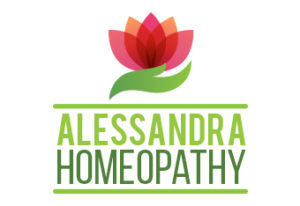Prepare for summer holidays with natural. gentle and effective homeopathic remedies in your medical kits. These are my families, tried and true homeopathic’ s used with great results on our travels around the globe and when we are camping.
First, let me share that my passion for Homeopathy started 20 plus years ago when a family health crisis, that was not improving under conventional medicine was quickly and effectively addressed through homeopathy. In fact, the results were so dramatic, I left my successful career in finance in order to become a homeopath, studying and training with many of the top teachers of classical homeopathic medicine.
Also, feel comfortable to know that when you use homeopathy you will be joining the over 200 million people around the globe in more than 50 countries, who are using it. The World Health Organization recognizes homeopathy has the second most practiced alternative form of medicine worldwide.
Enjoy a healthy summer;
Travel Remedies:
Arnica montana: first remedy for bruises, blows and falls, shock from injury, head injuries and concussions.
Arsenicum album: diarrhea and/or vomiting from any food or water poisoning, fatigue.
Apis: bites that become red, swollen, sting, especially if bite feels hot and are worse from heat.
Nux Vomica: unwell from overeating and alcoholic drinks, constipation.
Rhus toxicodendron: injury from strains, stiffness on first motion and limbers up as you begin to move.
Camping, add these two additional remedies to your kit:
Cantharis: first remedy for burns.
Hypericum: smashed nails, injuries to ribs, any injuries that affect area rich in nerves.
Alessandra Morassutti, is a Registered Homeopath with the College of Homeopaths of Ontario. She holds regular presentation’s on Homeopathy and useful every day remedies. Her practice is in Toronto and she offers long distance consultations. She can be reached at 416-488-3714 or through her website: www.alessandra-homeopathy.com.
Homeopathy is lightyears ahead of traditional medicine in this on respect.
Here’s the brutal truth about a lot of the medication that we take: they came about because they were used on animals first.
What does this involve? It can be anything from injecting animals with potentially harmful substances; force feeding them; exposing them to radiation; surgically removing their organs or
tissues to scaring them to elevate blood pressure levels.
A large proportion of animal experiments in the EU are reported to cause ‘moderate’ or ‘severe suffering’ to the animals – according to the researchers who carry them out, reports Cruelty Free
International. In the UK in 2016, 35% of animal experiments involved moderate or severe suffering.
Anyone who is serious about not causing harm to animals will take a second look at how homeopathic remedies are created.
One thing is for sure, they don’t require and has never required unnecessary and cruel experimentation on animals.
How do we know that homeopathic remedies are safe if they were not first tested on animals?
The answer lies in the very foundation that homeopathy is founded on. Samuel Hahnemann, the founder of homeopathy, was translating a botanical materia medica by a Scottish physician, William Cullen, from English into German. He read how Cullen describe using Peruvian cinchona bark to treat malaria. Cinchona bark causes fever when ingested.
This information intrigued Hahnemann and eventually resulted in him formulating the core homeopathic principle: Like cures like. Also known as the Law of Similars, it holds that a substance
that causes certain symptoms in a healthy person may cure similar symptoms in a sick person, when delivered in minute doses.
The important points here are “healthy person” and “minute doses”.
Right at the outset, Hahnemann tested minute doses of different substances on himself and those close to him. The observation of the symptoms caused by these minute doses are called “provings”.
These symptoms with the ingredients that cause them are recorded in the homeopathic materia medica which acts as a reference guide to homeopathic medicines, their individual active ingredients
and the symptoms that they may address.
As you can see, there is no need to campaign for animal rights where homeopathy is concerned. The very basis of “finding” a remedy lies in testing it on humans in a safe, controlled manner. No one, neither animals nor humans need to suffer to ensure the safety of homeopathic remedies.
In fact, for many homeopathic patients, the fact that the remedies are not tested on animals in labs is one of the basic reasons why they support homeopathy as a medical alternative in the first place.
APPOINTMENTS
